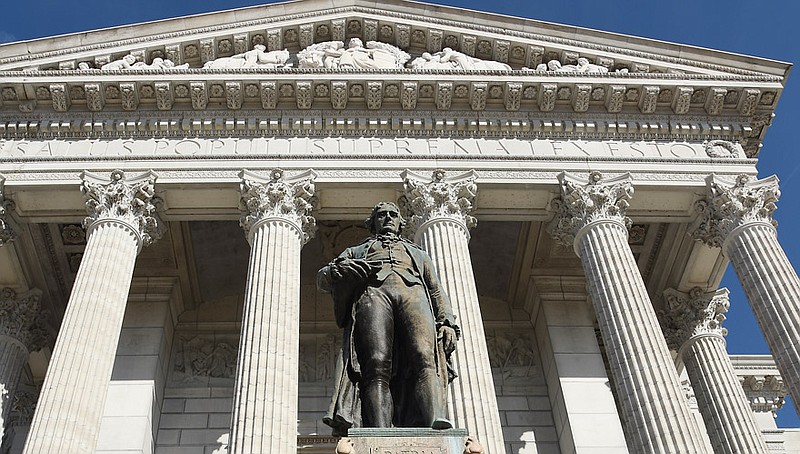JEFFERSON CITY, Mo. (AP) -- A proposed Missouri tax overhaul to cut state personal and corporate income taxes and eliminate some deductions stalled Thursday amid concerns over an estimated $126 million price tag, signaling Republican-led efforts to change state tax policy this year could be in trouble.
The bill hit a roadblock in the Senate's Fiscal Oversight Committee, which is tasked with weighing the financial impact of legislation. Republican Chairman Sen. Mike Cunningham was met with silence when he asked for another senator to second his motion to pass the bill, a procedural move that effectively blocked it.
The inaction dealt a blow to Republican-led efforts to change tax policy this year, which also was among indicted Republican Gov. Eric Greitens' top priorities for the session.
While the House on Tuesday passed its own version of a tax overhaul, the sponsor of the Senate measure said his bill's delay doesn't bode well for the House version's chances in the Senate.
"If there's that little appetite to restoring money to the wallets of the taxpayers of the state in the Republican caucus, then I think it causes great concern of where we go this year," Republican sponsor Sen. Bill Eigel said.
Eigel's measure was met with bipartisan pushback by Senate committee members over worries about the cost to the state.
Republican Sen. Dan Hegeman said while he's "certainly been supportive of other proposals, this one still gave me some pause." It also doesn't have backing from the Senate's leader, Republican Senate President Pro Tem Ron Richard. He has repeatedly cited concerns over the financial impact and said he previously voted against it.
Eigel's tax plan would reduce the top individual income tax rate from its current 5.9 percent to 5.25 percent in 2019, and it would cut Missouri's corporate income tax rate from 6.25 percent to 5.25 percent starting next year.
To balance out lost revenue from tax cuts, Eigel proposed eliminating the state income tax deduction for corporate taxes paid to the federal government, reversing a recently enacted tax apportionment option that has benefited some businesses and limiting the state tax deduction that individuals can take for taxes paid to the federal government.
The legislation also would gradually increase the state's motor fuel taxes from the current 17 cents a gallon to 23 cents a gallon by July 2021 and would allow additional increases to keep pace with inflation.
But even with those provisions, legislative researchers estimated it would cost the state $126.6 million in general revenue in fiscal year 2020, about $86 million in 2021 and roughly $90 million when it's fully implemented in 2027.
Eigel disagrees and said he's confident his plan is general-revenue neutral. He said that estimate doesn't account for a $40 million earmark included in the bill for senior services that would alleviate general revenue obligations, and he said it missed $54 million from six months of additional revenue to the state due to the elimination of the federal income tax deduction.
Eigel instead predicted his bill would cost about $32 million in 2020 and roughly $50 million in later years.
While the chances of tax policy changes passing this year appear diminished, next year might be more fruitful for supporters of an overhaul.
Richard, a top critic, is term-limited and no longer will be in office. And bills typically take several sessions to garner enough support to make it to the governor's desk.
Eigel said the environment is "only going to be more positive next year."

